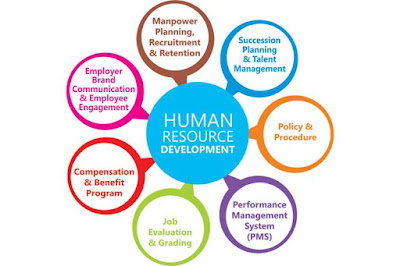With a view to strengthening foundational literacy and numeracy skills among learners, teachers need to have a mindset of a bit of change in order to cater to the uniqueness of every child, said Ms. Anita Karwal, Secretary (SE&L), Ministry of Education.
“Foundational literacy and numeracy are going to be driven only by teachers and the teachers will need to be having a mindset of a bit of change in their way they deliver education in the classroom and also the mindset of looking at the unique possibilities, the uniqueness of every child,” stated Ms. Karwal while chairing a webinar through virtual mode on 09th September 2021.
The webinar on “Foundational Literacy and Numeracy: A Pre-requisite to Learning and ECCE” is part of Shikshak Parv 2021 commencing from 5th September 2021 till 17th September 2021. The Shikshak Parv 2021 is being celebrated by the Department of School Education & Literacy, Ministry of Education. The theme for this year’s Shishak Parv has been decided keeping in view the Azadi Ka Amrit Mahotsav celebrations, as ‘Quality and Sustainable Schools: Learnings from the Schools in India’.
Ms. Karwal opined that every child learns at its distinct place, and therefore different interventions are required to deal with them. “In a classroom of 30-35-40-60 students, each and every child is different and the typical chalk and board pedagogy that we have is not going to be adequate,” she said, adding that in a very challenging pandemic situation where children may have devices or may not have devices.
“It’s actually a very difficult situation which requires a lot of deliberations and that is the reason why today we have administrators, planners, and people who are experts at governance, speaking to us along with the experts who have developed the NIPUN Bharat developmental goals and learning outcomes,” she said.
“We lay a lot of emphasis on the foundational aspects of learning what we have seen in the last National Achievement Survey 2017. There is a long journey ahead of us,” Ms. Karwal said.
“We need 100 % of our children to be proficient in their learning outcomes … and that is what we are working towards with the help of National Mission of Foundational Literacy and Numeracy that is NIPUN Bharat (launched on 5th July this year),” she said.
The Secretary said that in a country with 36 states/UTs where very few of us has managed to open schools at the foundational level, adding that twenty (20) odd states have opened schools partially in the country, and only three (03) states (such as Lakshadweep and Ladakh) have opened schools from Class 1 onwards. “The need to continue education through various formats and modes is very essential,” she said.
Now delivering foundational learning to children who have never seen school particularly the new entrants in class 1 last year who have now gone to class 2, and the entrants in class 1 this year who have never seen schools. “It’s actually one of the most challenging exercises that the teacher will be required to deliver. In the center of all this is the teacher,” she said.
While explaining the NIPUN Bharat intervention, Mr. Maneesh Garg, Joint Secretary, Ministry of Education, said that an enabling environment needs to be created to ensure universal acquisition of foundational literacy and numeracy so that by 2026-27 every child achieves the desired learning competencies in reading, writing and numeracy at the end of Grade III and not later than Grade V.
Explaining the developmental goals at the foundational stage, Prof. Sridhar Srivastava, Director (I/C), NCERT, said the first goal is to provide experience for health and well-being, socio-emotional development, nutrition, hygienic practices, and safety. Key competencies of the first goal are awareness of self, development of positive self-concept, self-regulation, pro-social behavior, decision-making and problem solving, healthy habits, hygiene, sanitation and self-protection, fine motor skills, eye-hand coordination, gross motor skills, and participation in individual and team games and sports.
He stated that the second goal is to build the foundations of language and literacy, adding its key competencies are broadly categorized into—talking and listening, reading with comprehension, and writing with purpose.
Prof. Srivastava said the third goal is to build foundations of numeracy, and provide direct experience and interactions with the physical, social and natural environment. Key competencies of the third goal are sensory development, cognitive skills, concepts related to environment, concept formation, number sense, number operations, measurement, shape, and data handling.
Prof. Suniti Sanwal, Head, Department of Elementary Education, NCERT, said for holistic development of children, developmental goals at the foundational stage (1st, 2nd, and 3rd) is to develop competency among children that would ultimately bring learning outcomes.
Prof. Sanwal further explained that competency mainly consists of three components—knowledge, skills, and attitude. Development in all these three components of competency will bring learning outcomes (observable and measurable in nature) among children. These learning outcomes among children will enable transfer of knowledge in real life situations.
Speaking at the webinar, Dr. T S Joshi, Director, Gujarat Council of Educational Research and Training (GCERT) quoted “Gijubhai Badheka” (1885-1939.) He was an educator who had helped to introduce Montessori education methods to India. He is referred to as "Moochhali Maa".
Dr. Joshi connected the New Education Policy 2020 with the efforts and contributions of Gijubhai Badheka in the field of education.












